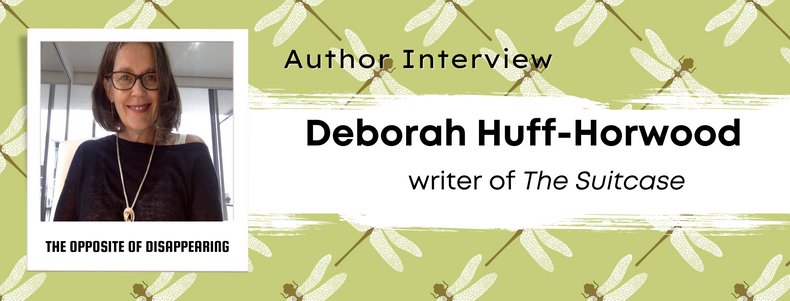Writer of The Suitcase
1. Other than the theme for the anthology, what was your inspiration for your short story?
During lockdown my life did not change much, in fact it was quite a relief to have to keep to myself, as I was going through an insular patch and wanted to just dwell in my thoughts and write. I wrote several stories about my grandmother who’d married a man twenty years her senior and was widowed young, then changed perspective and wove this tale around the few bare facts I had about my grandfather’s life before they met. At the time of writing this story, my father was dying of brain cancer, so this seemed a special way to honour him too.
2. Did you learn anything from writing your story? Is there something you hope people will learn when they read it?
This story emerged in quite a complex form with the protagonist hearing a voice in their head that acts as a second character, and another character who takes three quarters of the action and moves in and out of different time zones. Imagination plays a huge part in this story. I did not feel in control of the story as I wrote it but was aware that something special was appearing on the page, so I learned let go and trust myself to let the story just flow. and the narrator guides the narrator
3. How did your character/s come to you? Were they difficult, were they easy?
The character of the young man was easy for he was completely me, and the voice in his head was also easy as that voice lives within me. The grandfather was a mixture of imagination and that which I knew from family stories and old photographs, and writing him was quite emotional as I felt each stage of what he was going though. When he jumped, I felt him fall, and as he starved, I felt hunger gnawing at me. His marriage brought me ridiculous joy.
4. What kind of writing style or preferences do you have? Are they similar to your short story?
I tend to write in a heartfelt, fluid, lyrical manner using poetic devices. My characters are usually honest and sensitive people who are a little perplexed at the world around them, or alternatively are single-mindedly determined to assert their own style. Many are solo introverts, like me.
5. Do you have a favourite genre that you love to read? Or perhaps a favourite writing style?
I spend much time thinking about the texture of the prose and the creation of the atmosphere in my stories, whether I am writing picture books, my middle-grade novel or short stories. I read widely across all genres and have a vast collection of children’s literature, especially loving realistic fiction set beside or on the water.
6. Without giving too much away, could you tell us a little about your short story?
This story honours anyone who has battled mental health issues and celebrates the small (and large) acts of courage that permit life to go on.

